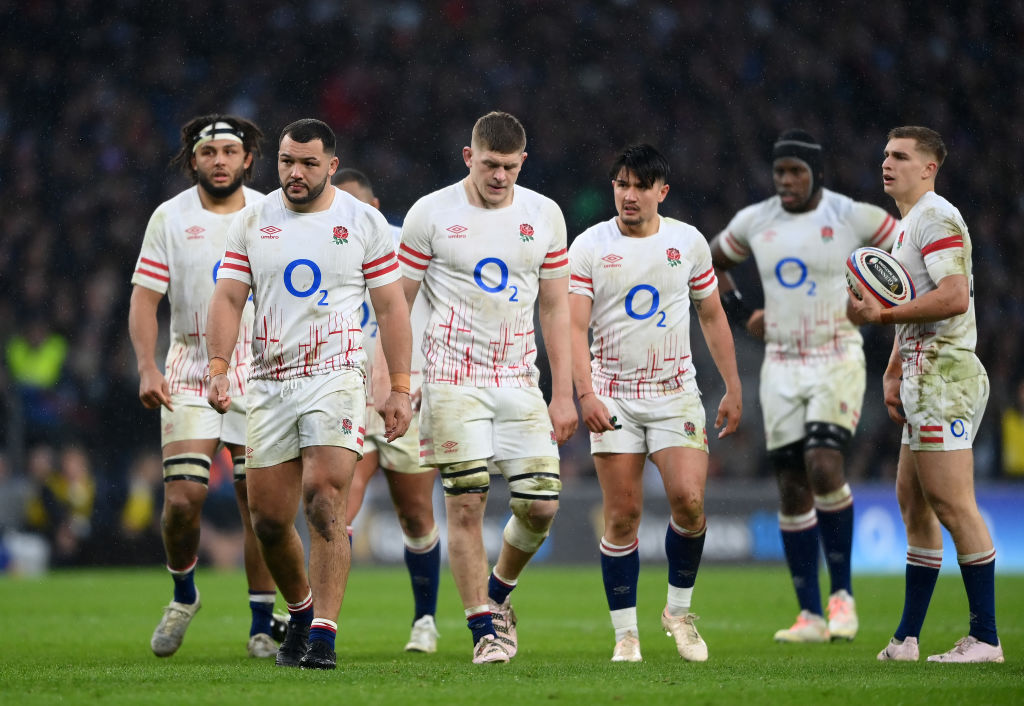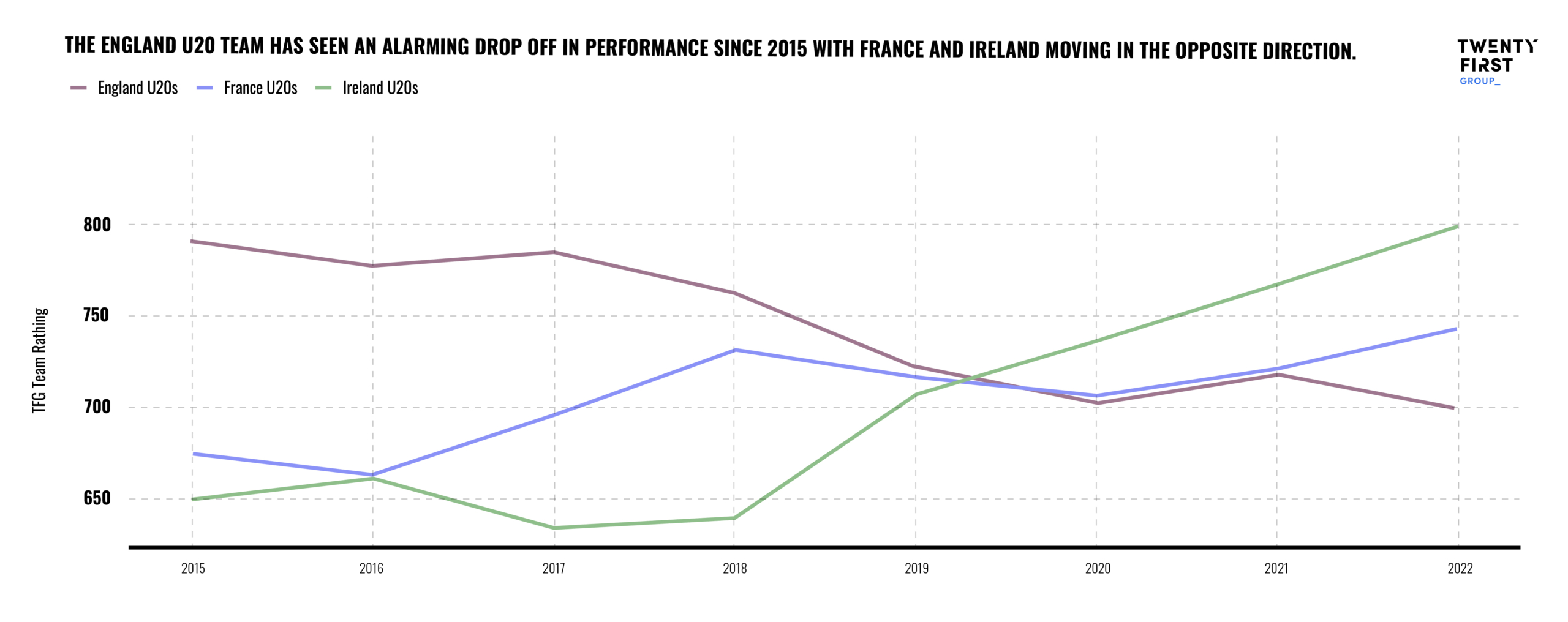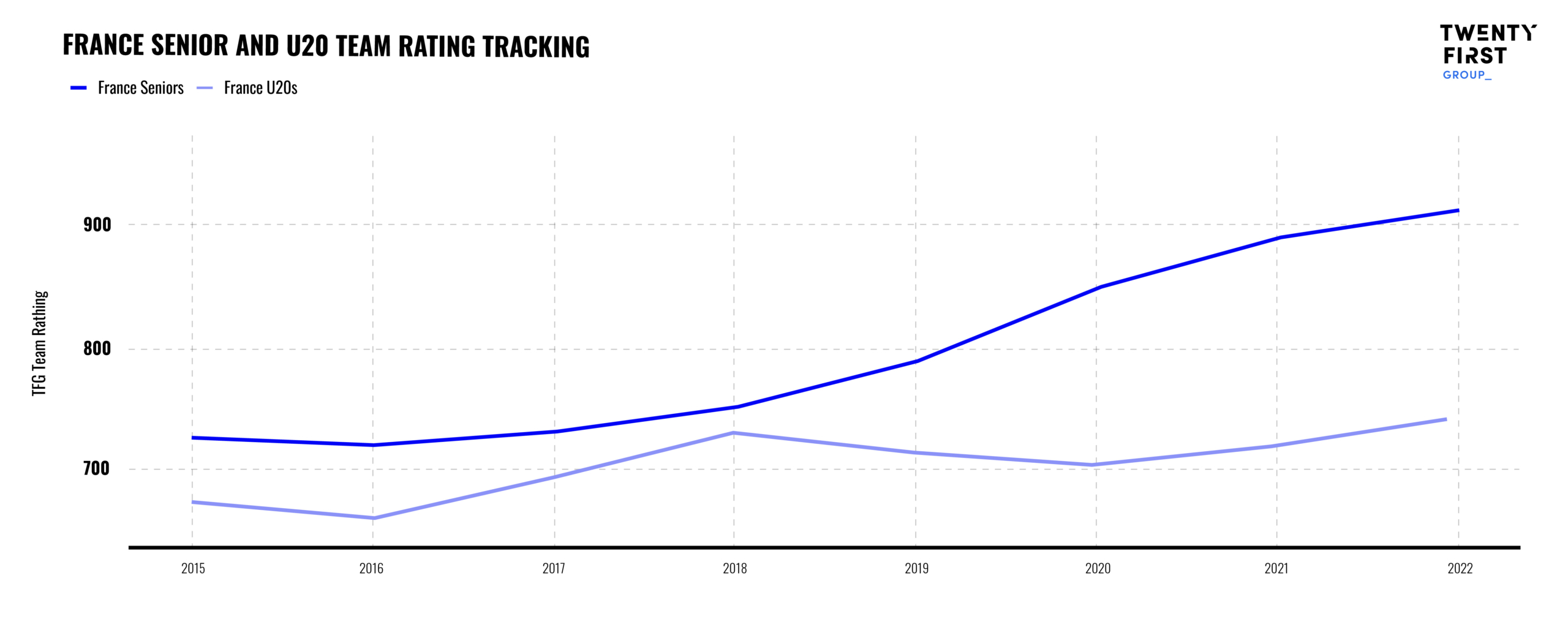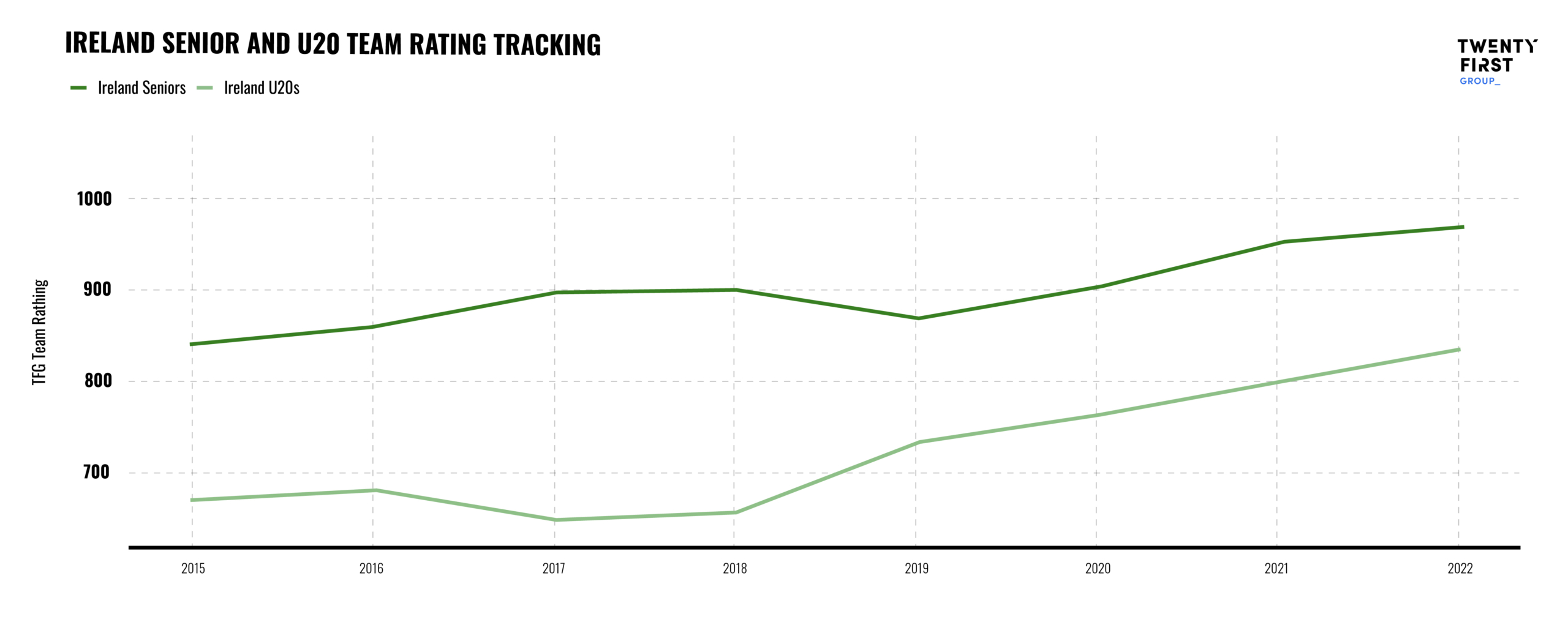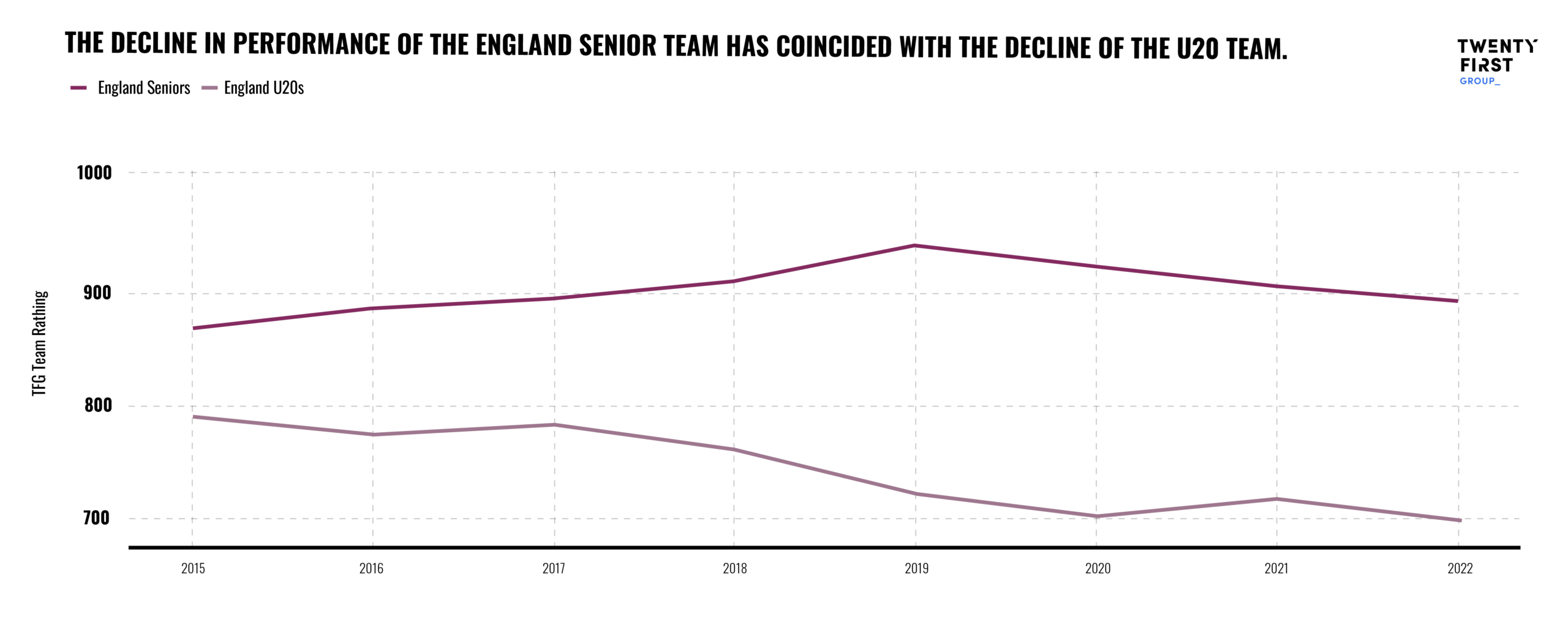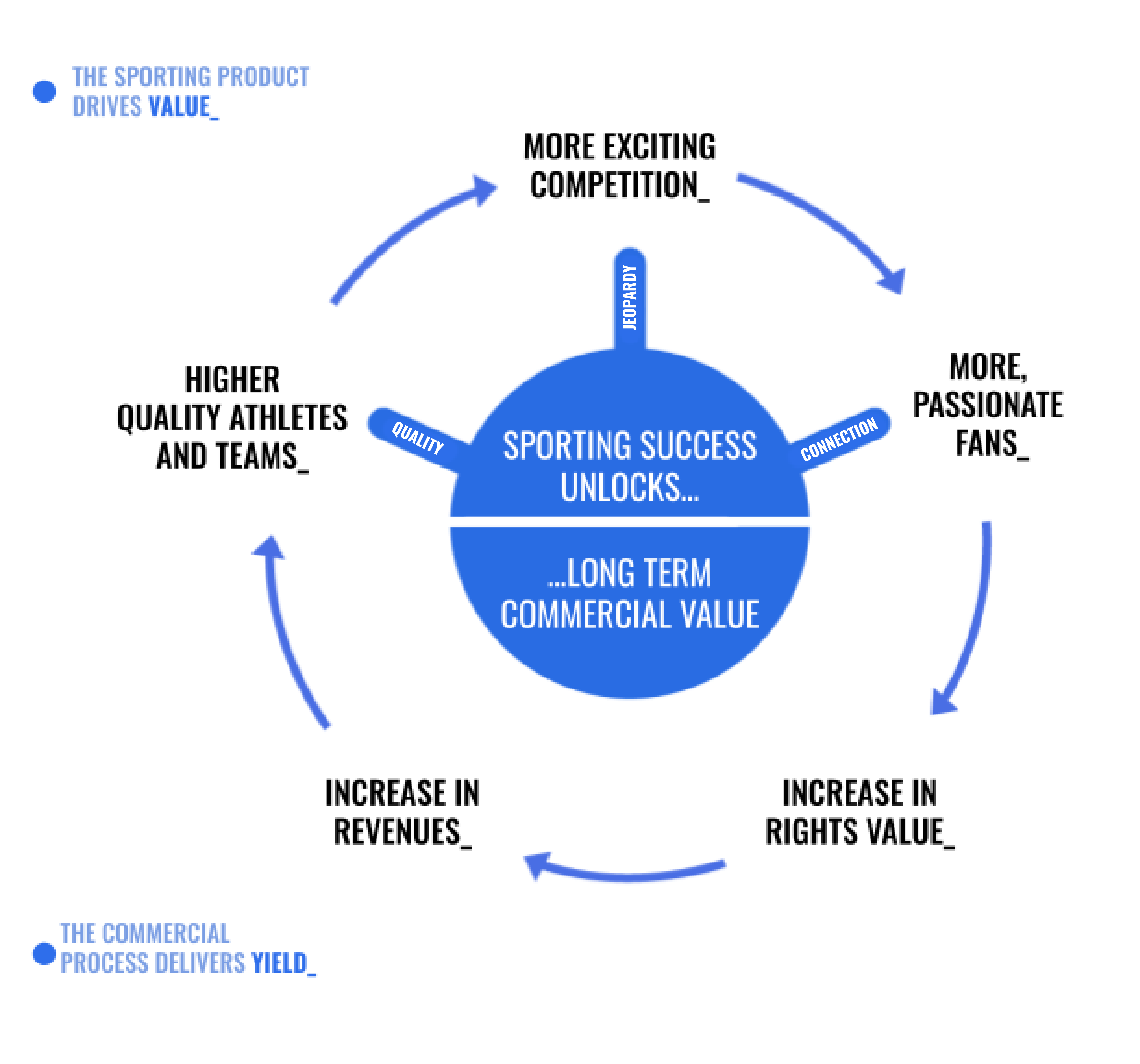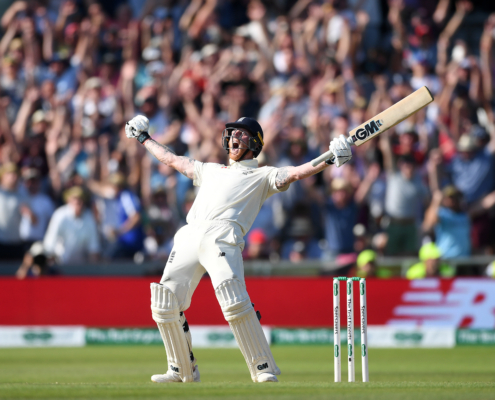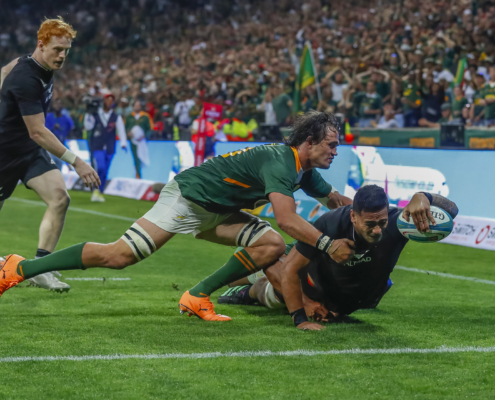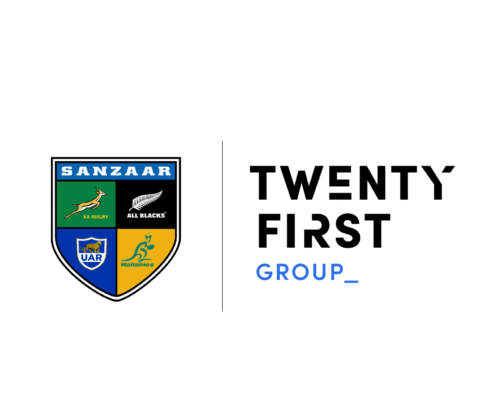Thought Leadership
English Rugby: The Sleeping Giant that Won’t Wake Up
10 MIN READ
Thought Leadership
Inspired by what you’re reading? Why not subscribe for regular insights delivered straight to your inbox.
RFU High Performance Review
The performance of the England Men’s rugby team has been lacklustre since defeating New Zealand in the 2019 World Cup semi-finals. With only two Six Nations victories in each of the 2021, 2022, and 2023 campaigns resulting in finishes of fifth, third and fourth respectively, England head into the 2023 World Cup with hope, but not expectation. Given the substantial financial and playing resources at England’s disposal, this is hard to fathom and speaks of a system in need of attention.
Italy and France have higher populations than England, and yet according to IRU data from 2011, the number of male players playing Rugby in England is greater than that of the other six nation’s countries suggesting that participation is an advantage, not a challenge (although Covid has precipitated a dip in participation).
England’s numerical advantages have historically been enough to drive their success – they remain the only Northern Hemisphere team to win the World Cup. Sir Clive Woodward’s team of 2003, which boasted the likes of Jonny Wilkinson, Martin Johnson, Richard Hill and Will Greenwood carried all before it having successfully straddled the transition from an amateur to professional game. However, our models suggest there is a good chance that either France (22.1%) or Ireland (20.4%) will win the Webb Ellis Cup later this year, with England outsiders at best (8.5%).
Perhaps most concerning for England is the decline of the U20 team – generally a lead indicator for future success at senior international level. Having been the strongest U20 team among Six Nations participants in 2015, they are now third behind both Ireland and France, suggesting a more than temporary blip in performance on the biggest stage.
This stands in stark contrast to France and Ireland in particular. France’s youth team improved from 2015 to 2018 at which point the senior team started to challenge consistently for the Six Nations crown. It is no coincidence that this is when the likes of Dupont, Jalibert, Ntamack, Ramos & Penaud – players developed in France’s youth system – all started playing for the senior team which is now among the World’s strongest. For their part, the Irish – the Northern Hemisphere’s other great World Cup hope – have seen an improvement in both senior and U20 teams since 2019, perhaps as a consequence of a new strategy launched in 2018 with a specific focus on the period up until 2023.
The juxtaposition is striking, particularly with Ireland, a country whose rugby resources – both playing and financial – are dwarfed by their neighbours across the Irish sea. The implication is that the English system, not just the England team, is struggling, with both senior and U20 teams in decline. As is often the case in sport, the RFU has placed its hopes on the coach. Steve Borthwick replaced Eddie Jones before this year’s Six Nations in the hope that a different approach will get the best out of a group of players who, it is assumed, have the talent to carry all before them. There may even be a sneaking hope that England could come good in time to challenge for the World Cup, particularly given their favourable draw.
This however assumes the issue is simply one of coaching. While Brendan McCullum’s transformation of England’s Test Cricket team demonstrates the impact that bold, innovative coaching can have, the likelihood for the RFU is that the current crop of English rugby players are simply not as good as the French or Irish. Eddie Jones may not have been a skittish selector, he may have never managed to complete his hunt for players with the talent necessary to compete for Grand Slams and World Cups.
Talent development is a game of outliers in which there are no guarantees. The Belgian football team have been ranked among the top 5 for the last decade, aided by the emergence of a freakishly good crop of players (Kevin De Bruyne, Eden Hazard, Romelu Lukaku etc), rather than as a result an elite development system. Most predictions of where the Belgian football team will rank in 20 years have them significantly lower than 5th as they are likely to regress to their natural place in the hierarchy based on their population and the penetration of football among youth participants.
The All Blacks are perhaps the finest example of the opposite – a system that is so effective, it can overcome the natural disadvantage of population to make the emergence of outlier talent predictable, or even inevitable.
But what of England? Is this a case of bad luck or the inevitable consequence of a broken system? That England’s decline in senior Internationals is matched by a decline at youth level is certainly cause for concern, as is the fact that the domestic game is in a parlous financial state. There are enough long term markers to warrant further exploration into the system upon which England’s performance relies.
Much focus is currently being placed on the sustainability of the club game and its ability to compete with the riches of French and Irish clubs. While this is much needed, our view is that performance and commercial are inextricably linked and the RFU can’t reasonably expect to secure the financial future of the game in England without resolving the existing performance issues.
Faced with similar issues, the ECB have sought to create a holistic performance system to create sustainable on field success for the long term, while also helping to drive the game’s commercial success. Cricket is a useful case study for Rugby, with the two sports sharing many similarities – an underperforming national team (now seemingly resolved for English cricket), a domestic game with financial challenges and revenues generated centrally being key to the game’s overall survival. In recognition of the challenge faced by England’s current – and likely future – performance, the time is right for a similar period of introspection and the creation of a proactive plan to put English Rugby Union back on a firm footing.
If you would like to find out more about our performance review services please get in touch with Ben Marlow.
